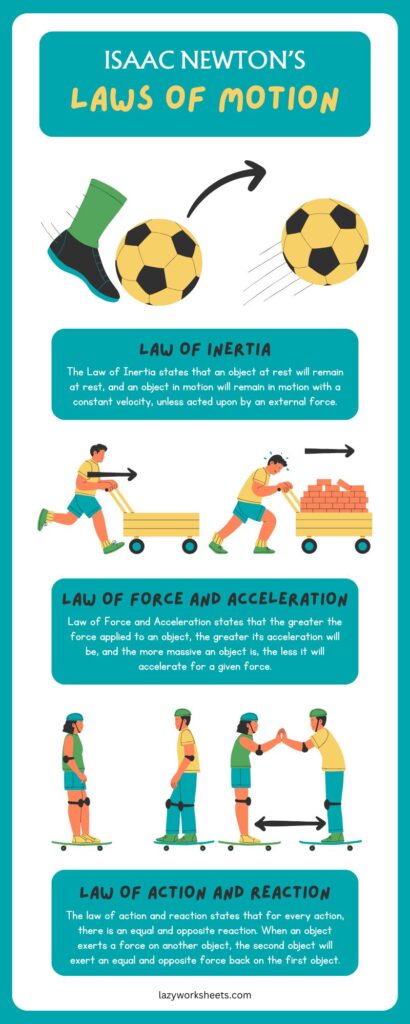What are Newton’s Three Laws of Motion?

Newton’s Three Laws of Motion pertain to the Law of Inertia, the Law of Acceleration, and the Law of Action and Reaction. These three laws of motion are undeniably some of Sir Isaac Newton’s most impactful achievements. However, what are Newton’s Three Laws of Motion?
First Law: The Law of Inertia
An object at rest stays at rest, and if an object is moving at a constant velocity or speed, it will remain in motion unless disturbed by a force.
Second Law: The Law of Acceleration
The acceleration of an object is directly proportional to the amount of net force acting on it and is inversely proportional to the object’s mass. This means that an object’s acceleration increases as the force acting upon it increases. On the other hand, as the mass of an object increases, the acceleration of an object decreases.
Third Law: The Law of Action and Reaction
For every action, there is an equal and opposite reaction.
Examples of Newton’s Three Laws of Motions
- Law of Inertia: A ball stays at rest until someone kicks it.
- Law of Acceleration: The harder you push on a swing, the higher or faster it goes.
- Law of Action and Reaction: When a ball bounces on the ground, the ball pushes down while the ground reacts by going back, causing the ball to bounce.
Summary
- Newton’s Three Laws of Motion are the Law of Inertia, the Law of Acceleration, and the Law of Action and Reaction
- Law of Inertia: An object stays at rest or in motion unless acted upon by an external force.
- Law of Acceleration: Acceleration depends on the object’s mass and the force applied to it.
- Law of Action and Reaction: Every action has an equal and opposite reaction.
—–
So, the next time someone asks you, “What are Newton’s Three Laws of Motion?” you know the answer. Keep it up, young genius!
Need more help in Science? Got assignments to finish? Let us help you excel in school. Ask your questions here, and our team will try to answer them and share more information with you.
